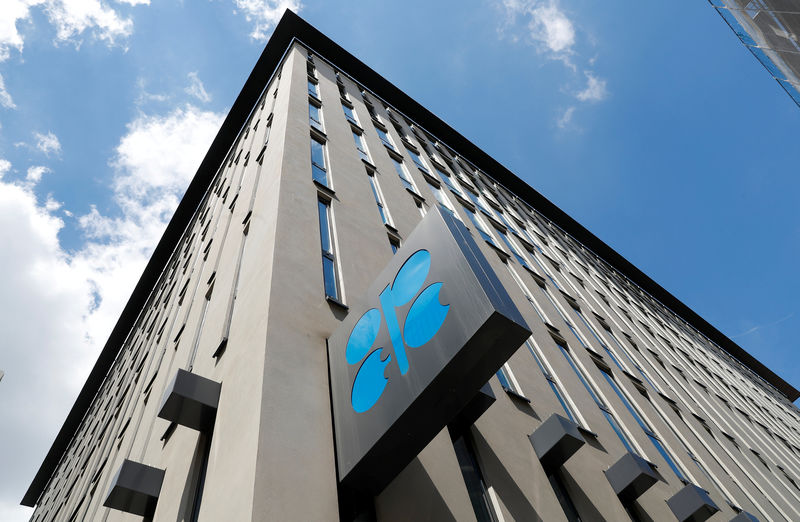By Ahmad Ghaddar and Olesya Astakhova
ALGIERS (Reuters) - OPEC and its allies reduced oil output in August as a drop in Iranian supply due to U.S. sanctions derailed their attempts to raise production to agreed levels, delegates said on Saturday as the energy producers prepared to hold talks in Algiers.
The development further raises pressure on the Organization of the Petroleum Exporting Countries to boost supply amid calls from U.S. President Donald Trump to lower oil prices.
On Friday, a source familiar with the discussions told Reuters OPEC and its allies led by Russia were considering the possibility of raising crude supplies by a further 500,000 barrels per day (bpd) as U.S. sanctions on OPEC's third-largest producer, Iran, bite into Tehran's exports.
"If an increase in production is proposed there will be plenty of market counter-argument that it reduces even further the available spare capacity," Olivier Jakob from consultancy Petromatrix said.
"Saudi Arabia has made the mistake of trying to compensate for the loss of Iranian supplies with just-in-time replacement; but the oil market is looking for greater supply security than that. As a result, the strength of oil prices is now putting oil demand growth at risk," he added.
An OPEC and non-OPEC monitoring committee gathering in the Algerian capital this weekend found that oil producers' compliance with a supply-reduction agreement reached 129 percent in August, two committee delegates said.
This compares with a compliance level of 109 percent for July, indicating that the group went beyond its agreed cut.
Oman's oil minister Mohammed bin Hamad Al-Rumhy told reporters on Saturday that OPEC and non-OPEC producers overachieved on pledged output cuts by 600,000 bpd in August, putting the reduction at around 2.4 million bpd.
OFF-TARGET
Seeking to reverse a downturn in oil prices that began in 2014, OPEC, Russia and other allies decided in late 2016 to reduce supply by some 1.8 million bpd.
In June this year, however, after months of cutting by more than their pact had called for amid involuntary reductions from Venezuela and other producers, they agreed to boost output by returning to 100 percent compliance.
That equates to an increase of about 1 million bpd, but the latest figures show they are some way from achieving that target.
Oil (LCOc1) reached $80 a barrel this month, prompting Trump to demand again that OPEC bring down prices.
"We protect the countries of the Middle East, they would not be safe for very long without us, and yet they continue to push for higher and higher oil prices! We will remember. The OPEC monopoly must get prices down now!" he wrote on Twitter.
Higher gasoline prices for U.S. consumers could create a political headache for Trump before November mid-term congressional elections.
OPEC sources said any official action to raise output would require OPEC to hold what it calls an extraordinary meeting - a proposal that is not on the table yet.
But the joint OPEC and non-OPEC ministerial committee known as the JMMC, which meets on Sunday, can still recommend a further increase in output if needed, the sources said.

Iran crude oil exports to top destinations: https://tmsnrt.rs/2MQogku